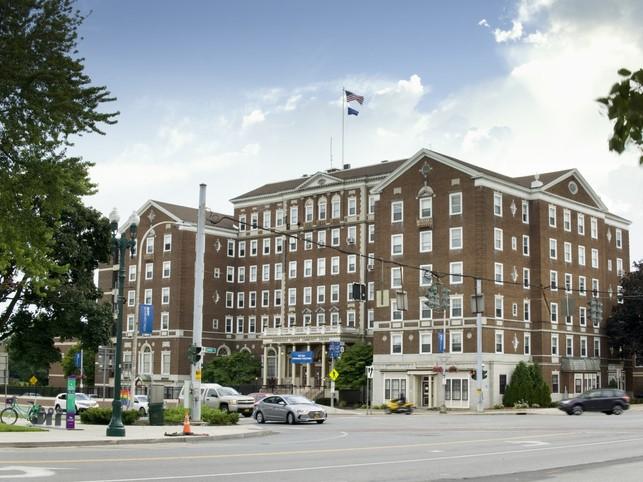
How universities can ensure they have a positive impact on local communities

The changing role of the “civic university”
The “civic” role of universities has arguably never been more important, but to really have a positive long-term impact on our local communities, we need to embed a strategic approach that brings universities and communities together in a process of co-production that is mutually beneficial.
Each institution and each place is different, so there is no one-size-fits-all approach, but some common themes for consideration include:
Clarity of vision and strategy – Most universities undertake some kind of civic engagement, but embedding a holistic approach requires a clear vision and strategy, underpinned by shared values and senior strategic leadership. As well as setting out a strategy, it is important that there is a clear delivery plan that explains what, why and how activity will make a difference.
Critically, the strategy needs to set out the inter-relationship between civic engagement activity and the educational and research aims of the university. The way universities operate as large employers and anchor institutions also has a huge impact on local communities, so operational policies, such as social value procurement, Real Living Wage accreditation, Net Zero plans and support for volunteering all play a part. They can also have a positive impact for our own staff and students.
Understanding place and the needs of local communities – Building a good understanding of our place has to be the starting point. Universities must be clear about how they define their “local” – it does not necessarily mean the immediate area in a radius around their institution, and may be informed by administrative or political boundaries of partners.
Many universities have multiple campuses across the globe with different cultural and socio-economic drivers. But there must be choices – it cannot include everybody, everywhere. It is an ongoing process, and it is helpful to have regular points throughout the year that provide an opportunity to engage, reflect and review progress.
The quadruple helix – Bringing together universities and other education providers with government, industry and local communities creates an opportunity to build a shared vision and shared language that can deliver real change in places. While universities cannot, and should not, do everything, combining the strengths of the university in research and education with its role as an anchor institution alongside partners can be transformative.
It is not just what we do, but how we do it. Parity of esteem and the process of engaging local communities and partners in what is important to them both informs the focus of the strategy and enables the co-creation of delivery plans, as well as building the trust and long-term relationships that are so important to the success of any university.
Student experience – Our students are key to our relationship with communities and place. They are global citizens who often come to a new place to study and then make it their permanent home; they contribute a huge amount to the economy, culture and vibrancy of a place and make up the workforce of the future.
Increasingly, students expect opportunities to engage with industry and connect to local places to be embedded in the curriculum to increase their transferable skills and employability. Moreover, it seems likely that competition between institutions for students will be more driven by the visibility of a commitment to social and environmental justice in future.
Building internal capacity, systems and processes – There is a risk in starting a conversation with communities and partners unless you can be really confident that you can deliver on it. This takes time. Spending time on the internal culture, capability and capacity is well worth it. Having a senior designated lead for this agenda is important. Each institution needs to develop its own delivery models, but a small central coordinating team can be helpful in providing a “front door” for external partners, who often find university structure byzantine and difficult to navigate.
At our university, the core team provides practical tools and guidance and coordinates delivery, as well as communications and policy engagement. They also support a much wider “virtual team”, which includes cross-cutting deans, who have expertise and networks in key areas such as culture, business and lifelong learning. We have engagement and place leads in each of our three faculties who engage with academics and students and help ensure activity is embedded.
At an institutional level, policies, systems and processes can make a big difference, for example, recruitment and progression need to reflect the importance of this work. Whether we like it or not, what gets measured gets done. So identifying institution-wide KPIs and the appropriate governance is key.
Ultimately, it is vital to build and embed a culture of engagement. This is reflected in the values of the university, the support for engagement activity and the recognition that this activity is valued and adds value as a core part of the university’s mission to benefit society.
Jane Robinson is pro vice-chancellor for engagement and place at Newcastle University.
Additional Links
Find a range of practical support and resources on public engagement from The Civic University Network
Find out more about Newcastle University’s Engagement & Place Strategy


